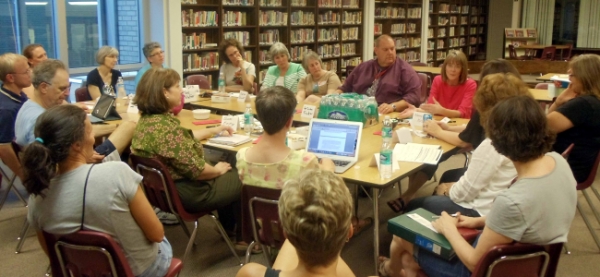Parents are a truly valuable contribution for schools, particularly when it comes to driving improvements. This is where I think some schools may be missing a trick. They are yet to realise the benefits that can be gained from parent bodies, who are arguably a school’s greatest natural resource.
Make the most of your parents
"Parents aren’t yet regarded as key players in national education."
Schools are made up of hundreds of parents who, when they work as a unit, are capable of influencing educational outcomes and providing extraordinary support to the school. The struggle though, and one that I think is unacceptable, is the fact that parents aren’t yet regarded as key players in national education discussions no matter how much influence they may have on their own child’s education. We hear from teachers voicing their challenges, the Government about education policy – but where is the parent's voice?
It’s so important for every child to be given the best possible opportunities to learn and succeed in the classroom, and for this learning to be reinforced and supported at home.
Developing a solid relationship between teacher, school and parent is the key to a successful education for kids. Parent teacher associations (PTAs) are a way of uniting two core aspects of a child's development, the school and the home, to become a single, unified approach. Why then, when harmony between teachers and parents is such an important factor in a child's learning, do we not yet have a PTA in every school?
The value of a PTA
In the last year alone, PTAs in the UK have raised £120 million for schools through fundraising. This is a huge amount of money, considering it would’ve had to come out of school budgets otherwise. That should be enough of an incentive for parents and schools to establish a PTA in itself.
Fundraising is just one element that PTAs get involved with though; the work they do alongside a school is actually so much more than financial support. They serve a far greater purpose which lies in their talents of developing stronger links between school and home and bridging the gap with hard to reach parents.
Building bridges
Being part of the school community creates a more positive and trusting atmosphere for parents and children. For anyone new to the school or travelling from some distance, having a PTA is a great opportunity to get to know the school, other parents and actively be part of their child’s school life.
Other schools have taken the concept further, using their parent body to not only build relationships with the school, but to completely transform it.
Stanton Bridge in Coventry was a failing school when headteacher Sofina Islam OBE first joined. The school was in a particularly poor state and parents were very vocal about how, as a result, their children were not given the best possible opportunities to achieve. Sofina recognised that this passion had the potential to create a united front; combining the parents’ drive to make the school better with the staff’s effort to bring the school back from the brink of failure.
Now, Stanton Bridge is one of the top performing schools in the UK, demonstrating the influence the parent body has on the success of a school.
Consultancy - without the fees
"Parents aren’t yet regarded as key players in national education."
It’s important for schools to seek feedback from parents, particularly when it comes to implementing new initiatives or policies. Imagine a child returning from school with a newsletter listing various school changes, without any explanation or chance to voice concerns. This could be perceived negatively by parents who think they should’ve been consulted. Therefore, it would be in the school’s interest to listen to what parents think, especially when it may affect a child’s education. Understandably, they don’t have to consider every opinion but it is beneficial for them to at least receive constructive feedback.
One school in Chudleigh recently asked for advice from parents on their revised behaviour reward system prior to re-launching it, and were able to improve the model and communication with the wider parent body based on the feedback they received. It’s this kind of interaction with parents that enables schools to go that step further than they would have been able to, had they been working in isolation.
Of course, there will be some schools nervous about inviting parents to have a say in the running of the school, worried that they might become too involved. This can be solved by setting a clear definition of the relationship between staff and parents.
Making it work
You should certainly consider a certain number of factors before setting up a PTA and of course, there’s bound to be a few teething problems, but with a few hints and tips, it should be fairly straightforward.
- Firstly, sit down with your teachers and establish how much involvement you would like parents to have. There may be certain things that teachers would prefer to do without parents’ judgement.
- Encourage your teachers to get involved in the PTA and help with any fundraising events, if they want to. It’s another good way to build relationships with parents.
- The next step is to invite the parents to join. Don’t be phased if you only get a few willing people to begin with. It’s better to start with a small group and test it out, then you can build up the members.
- Decide who will be your main point of contact and how often you will hold meetings, as well as whom will be responsible for coordinating fundraising and spending. That way you know exactly whom to approach for any issues that may arise.
- For those that didn’t take up the offer, keep in touch with them so if they do change their minds, they know it’s not too late to join. Send invites letting them know about any upcoming events or encourage members to speak to them about the types of things they get involved with.
Parent bodies are a powerful vehicle for all parents and teachers who want to go above and beyond to give children the best possible learning experience, and offer the perfect platform to grow wider support for a school. Listening to the experiences of the schools we work with, there’s nothing to be lost from establishing a PTA, but everything to gain.
Does your school have a PTA? Share your experiences in the comments below.


















